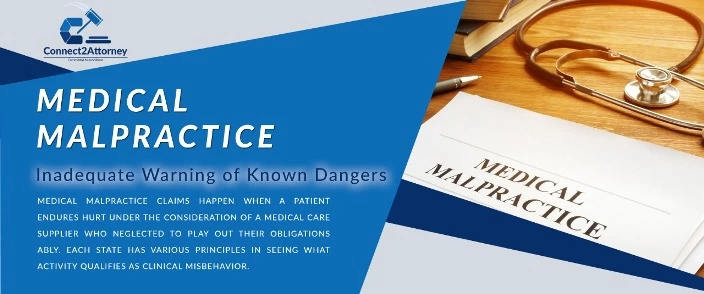

Medical malpractice claims happen when a patient endures hurt under the consideration of a medical care supplier who neglected to play out their obligations ably. Each state has various principles seeing what activity qualifies as clinical misbehavior. A few states expect you to advise a clinical expert of your legal procedures early. Different expectations and chief guidelines might apply in specific clinical negligence cases. An authorized proficient in your state can best furnish you with data in regards to clinical misbehavior cases. Inability to Diagnose
Inaccurately diagnosing a medical issue can prompt extreme ramifications for the patient’s possibilities of recuperation. For instance, in the event that a specialist analyzes a patient who has a cellular breakdown in the lungs with something less genuine, similar to sensitivities, the patient won’t stand out enough to be noticed they need. Assuming that one more clinical expert similarly situated accurately analyzed the patient and directed suitable consideration, the patient might have justification for a clinical negligence guarantee.
You may be able to file a suit for medical malpractice if your doctor provides an intervention that no other doctor would reasonably conduct. If a doctor picks the correct treatment but fails to provide it correctly, the conduct is considered medical malpractice. A patient’s condition might be mishandled at any moment throughout their medical treatment, and this constitutes medical malpractice owing to negligence.
Patients must be informed of all known hazards associated with any operation or therapy. The patient may have a case if the medical practitioner delivers treatment that causes damage to the patient and the patient would have refused the treatment; had they been aware of the dangers
For a medical malpractice claim to stand, you must be able to explain numerous things. A professional connection between yourself and your doctor must first be established. These appointments and payments need to be documented in order to prove that you received medical care.
Medical bills and invoices might be sufficient documentation for patients to complete this criterion fast. If your therapy was not administered by a consulting physician, there may be doubts regarding the doctor-patient connection in this case.
A medical procedure may not yield the results you had hoped for or expected.. Medical malpractice, on the other hand, is not an appropriate term to use here. An effective medical malpractice claim requires proof that your doctor was careless in how he diagnosed and treated you. You must show that the doctor harmed you in a way that another physician would not have done under the same circumstances.
The law does not require caregivers to be faultless, but they must act with reasonable care and competence in consideration of your medical situation. If a patient’s attending caregiver strayed from normal practices, a medical expert’s evidence will help clarify the matter.
In order to establish medical malpractice, you must prove that your doctor’s carelessness caused your injury in addition to establishing that your doctor was negligent.
In many malpractice cases, the question of whether the doctor’s treatment caused the needless injury is left open because of pre-existing diseases or injuries. To provide an example, it may be difficult to prove the doctor was negligent if a patient dies after receiving a diagnosis of lung cancer due to the doctor’s activities, even if the doctor was negligent. The patient must prove that the doctor’s carelessness or incompetence led to their harm in order to file a medical malpractice claim.



